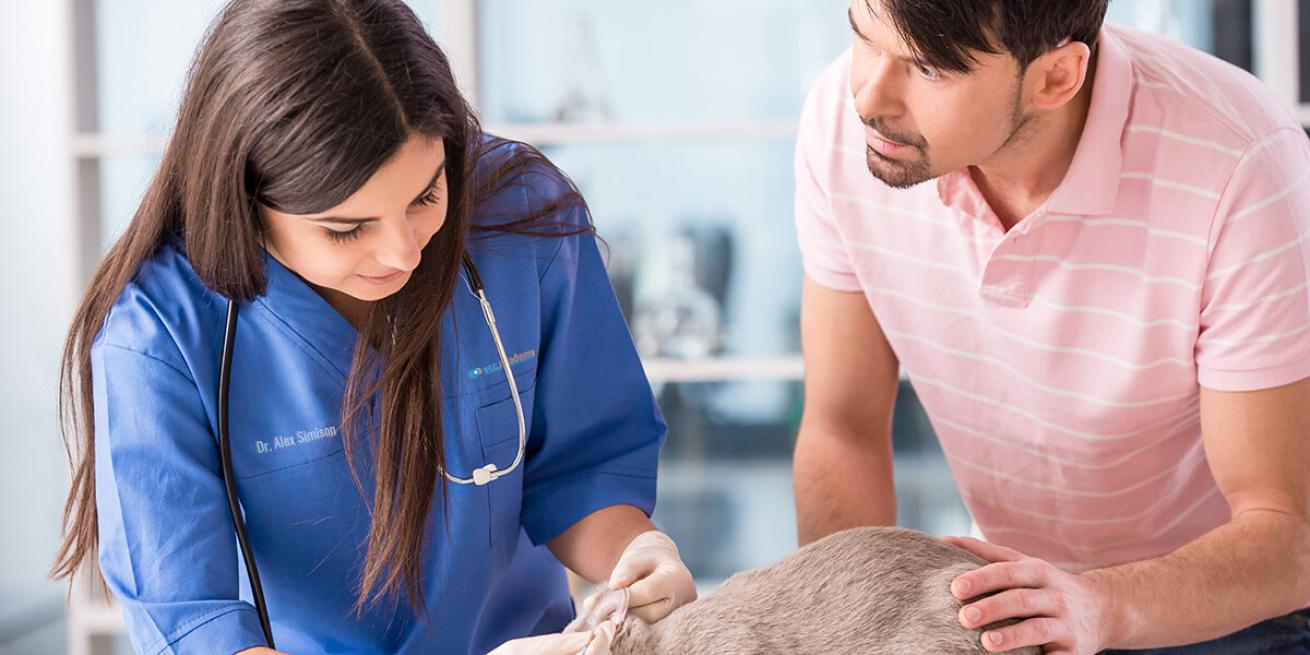
Effective communication is the cornerstone of any successful organization, and veterinary hospitals are no exception. Interpersonal communication, specifically, plays a crucial role in creating a positive and nurturing culture for both the animals and the people involved. In this blog, we will delve into the significance of interpersonal communication within a veterinary hospital and explore how it enhances patient care, client satisfaction, and overall teamwork.
Building Trust and Comfort
Interpersonal communication forms the foundation of trust and comfort between veterinarians, veterinary technicians, and clients. Clear and empathetic communication helps establish a sense of trust, enabling clients to confide in the veterinary staff regarding their pets' health concerns. By actively listening, showing empathy, and addressing client concerns, veterinary professionals create an environment where clients feel valued and assured that their pets are in capable hands.
Accurate Patient Assessment and Diagnosis
When it comes to animal healthcare, effective interpersonal communication is vital for accurate patient assessment and diagnosis. Veterinary professionals must communicate with clients to gather comprehensive medical histories, understand the pet's symptoms, and obtain relevant information. By asking relevant questions, actively listening, and seeking clarification, veterinary staff can obtain the necessary details for a thorough evaluation. This enables them to make informed decisions and provide the best possible recommendations for care for the animal.
I learned this firsthand in my early years as a veterinarian. After a failed attempt at diagnosing an itchy puppy (later revealed to be demodex), and weeks later dealing with an upset client. I knew that the real work of becoming an excellent veterinarian had just begun (and it had more to do with communication than it did with my expertise as a veterinarian).
Client Education and Empowerment
Interpersonal communication plays a pivotal role in client education and empowerment. As a society we have pivoted from a paternalistic approach to medical care to a partnership approach. Veterinary professionals should effectively convey information about preventive care, treatment options, medication administration, and post-treatment care. Clear explanations and open discussions empower clients to actively participate in their pet's well-being and make informed decisions. By fostering a supportive and educational environment, veterinarians help clients become advocates for their pets' health and improve overall compliance with treatment plans.
Compassionate End-of-Life Conversations
One of the most delicate aspects of veterinary practice is discussing end-of-life decisions. Interpersonal communication skills are crucial in handling these conversations with sensitivity and compassion. Veterinary professionals must provide support, actively listen, and create a safe space for clients to express their emotions and concerns. By understanding and respecting the client's wishes, veterinarians can guide them through this challenging decision making process, ensuring a peaceful transition for the animal and emotional support for the client.
Effective Teamwork and Collaboration
A veterinary hospital operates as a team, and effective interpersonal communication is vital for smooth collaboration among team members. Clear and concise communication ensures that everyone is well-informed about patient cases, treatment plans, and scheduling. Effective communication fosters a harmonious work environment, reduces misunderstandings, and enhances overall efficiency. Regular team meetings, open dialogue, and constructive feedback further strengthen communication within the hospital, promoting a culture of continuous improvement.
Interpersonal Communication is Fundamental to Veterinary Hospitals
“Communication…is a core clinical skill that is no longer optional.” - Cindy Adams, Communications Professor
In a veterinary hospital, interpersonal communication is a fundamental aspect of providing quality care and fostering strong client relationships. By prioritizing effective communication, veterinary professionals can build trust, enhance patient assessment, educate clients, handle sensitive conversations, and promote teamwork. Ultimately, investing in interpersonal communication skills (such as those that VCC.Academy teaches) cultivates an environment where both animals and their owners feel supported, respected, and confident in the care they receive.
If your goal is to be a great veterinarian in a clinical setting, you must be a great communicator. There are no exceptions.
Remember, effective interpersonal communication is a lifelong learning process. By continually striving to improve our communication skills, we can positively impact the well-being of animals and the satisfaction of their owners, ensuring a thriving veterinary hospital that upholds the highest standards of care.

Dr. Brett Bingham, DVM
In the early years of my veterinary practice, I learned the hard way that unintended bad communication can derail your best intentions. Through trial and error, I developed a communication course for myself and my veterinary team to develop confidence and success in the exam room. You can learn these powerful principles too! When great communication practices are put in place AND practiced regularly, you will see consistent growth, happier clients, and better job satisfaction.
Allow me to teach you the tools I’ve learned so that your practice can grow too.

